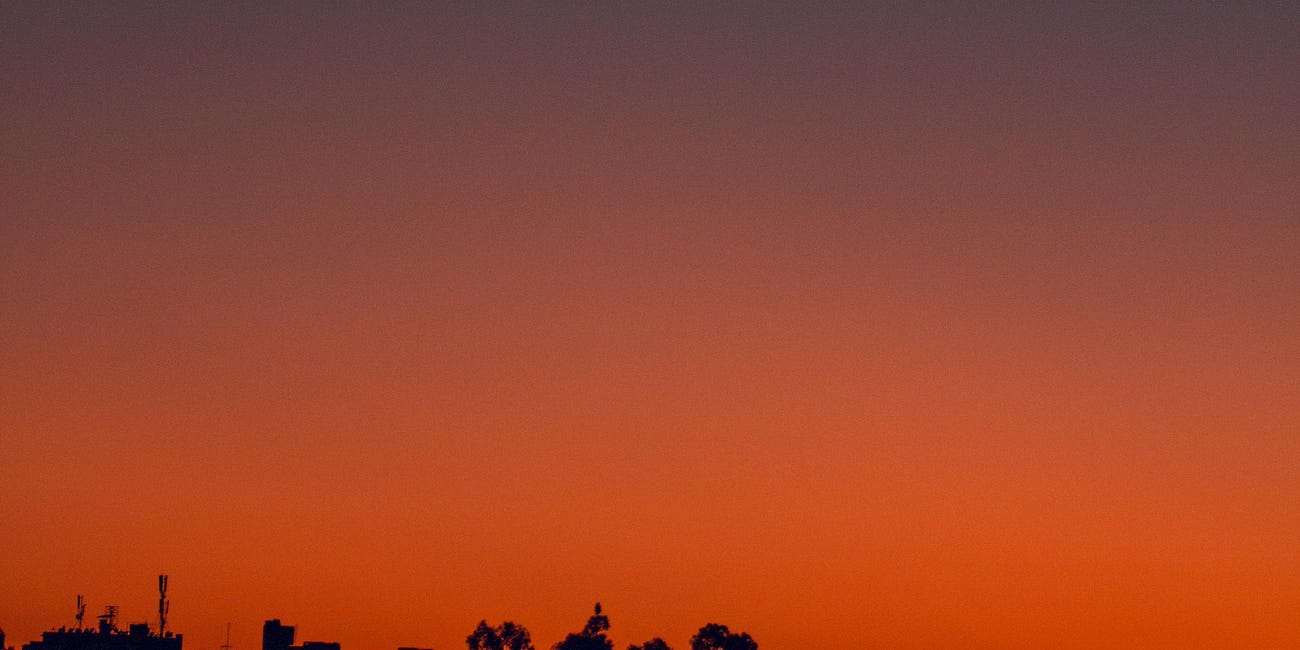Photo by Deca Zafra: https://www.pexels.com/photo/people-walking-on-pedestrian-lane-4688625/
This piece completes perspectives not covered in my previous two essays, hoping to serve English-speaking readers. Cultural differences are carefully annotated, but please feel free to ask in the comments if anything remains unclear.
1: The Winter of Childhood (1980s)
I was seven, in first grade that winter.
My younger sibling, not yet having had their birthday, was nearly three.
My father collapsed and was hospitalized at a university hospital.
"I want to bring father home," my younger sibling pleaded to my mother.
A distant memory they no longer recall.
Indeed, if I could bring him home, I would do the same.
But he had suicidal thoughts and difficulty achieving deep sleep,
And needed rest.
Note: As a native Japanese thinker writing in English, I use AI tools to help bridge cultural and linguistic gaps - similar to how a musician might use technology to arrange their compositions. All ideas, perspectives, and cultural insights remain uniquely mine.
2: Surviving a Difficult Childhood (1950s-1970s)
He survived a home filled with domestic violence.
It seemed a wealthy but loveless house.
In the late 1950s, the boy's father said
That even when bullied, sad, or frustrated,
He would always stop crying before returning home.
Otherwise, my grandfather would become emotional.
In such a home where he couldn't safely cry, my father grew up.
His poor eyesight went unnoticed,
And his family treated him as stupid.
He occupied a lower position in the family caste system.
His eldest brother (my uncle), ten years older and his protector,
Also entered treatment for mental illness.
Later, understanding it was just poor eyesight, my father lived
With mixed feelings of joy that "I wasn't stupid after all"
And deep humiliation.
When a middle school teacher with whom he didn't get along
Told him insultingly that it was impossible,
He went on to attend the technical high school with the highest academic ranking in the district.
In that era, boys could find employment at major companies this way.1
"I'm taking the long way around; I want time for research"—
These words, which would later become the source of his lifelong regret,
Were something the 18-year-old youth couldn't yet understand.
When assigned to a research institute, he realized
The positions were occupied by researchers with advanced degrees,
And he could never rise above being an assistant.
So he majored in mathematics at a night school
That he could attend while working from home.
Upon graduating from university,
He could use scholarships, so he quit his job
And completed master's and doctoral programs.
Blessed with a good academic advisor,
And being a tireless young man who worked with hunger,
He managed to produce results.
3: The Fall (1980s)
—That promising young man eventually started a family and was diagnosed with depression.2
In the 1980s,
Though the nurses and doctors at the university hospital
Confirmed my father was sleeping,
The agony of deep sleep disturbance is feeling as if you haven't truly slept, even when you appear to be sleeping.
He struggled to understand
His own mental and physical condition
As part of his illness.
And for my father's complaints of difficulty maintaining deep sleep,
Electroshock therapy was continuously
Administered for one week.
There was no explanation to my mother, nor her consent.3
Even considering it was the 1980s,
Something abnormal occurred.
At the hospital my mother eventually managed to transfer him to,
The new psychiatrist told her,
"That number of treatments was excessive."
My father expressed that he could no longer write papers or present at conferences
As he once did, saying,
"I feel I've become the stupid person they always said I was."
Given his profession,
He was someone who kept his nails clean and neatly trimmed,
So although his body, fingers, and nails remained unchanged,
Only the landscape visible to my father had altered.
Like a boxer with a broken body,
My father, a mathematician who could no longer enter the ring,
Suffered an identity crisis.
Therefore, even if we could bring him back,
Even if we could turn back time,
I cannot ask him to relive
Suffering that exceeded his capacity.
In the winter of my sixth grade year,
He left for work in his usual suit
And never returned to say "I'm home."
Like a single water droplet falling from a leaf, my father left this world.
4: Reflections on What Could Have Been
If we could bring him back, if we could rewind time,
I would want my grandfather to receive modern care
For his domestic violence issues.
He was drafted three times and came back a changed man,
So I believe it was likely related to PTSD.
But Doraemon4 and reality differ.
As a suicide survivor,
If I could say just one thing,
It would be that I wished he had lived.
Though his wife showed understanding, saying,
"It doesn't matter if you quit being a university professor,"
And though she tried to convey from personal experience
(Having grown up with a single parent herself)
What it means to wish for a parent to stay alive,
My father had invested all his status in mathematics
And couldn't really understand.
He must have been too deeply wounded.
I also sense the fragility of a mental structure
That incorporates one's career
Into a part of one's identity.
Career and achievements are results,
Not foundations—when built into what should be your core,
A recursive infinite loop becomes predictable.
5: Simple Wishes
Because he liked sauce-flavored foods,
I wish I could make him more stir-fried yakisoba
Than he could possibly eat.
However, in his thirties,
He once loved Peyoung Sauce Yakisoba (released in 1975)
So much that he ate two packages at once, became ill,
And had to be taken to the emergency room by a friend,
So making "more than he could eat" in the literal sense
Would be difficult.
He also liked Nissin Chicken Ramen (1958)
Which seemed to hold some memories for him.
Being a man of few words,
He never told stories about, for instance,
Eating it as a late-night meal
When hungry in his youth.
The one thing he did share was
That because there was no air conditioning in that era,
He would fill a large wash basin with water,
Soak his feet up to the ankles to cool off,
And study for exams.
He seemed to have particular study methods,
And I remember how this normally unexpressive man
Appeared unusually happy when talking about it.
For him, studying was something he enjoyed—
If you understood the scope of what would be tested, you could score well,
It was simpler than reality, and effort
More directly linked to results.
This makes the electroshock therapy all the more cruel and sad.
6: Traces and Memories
His university notebooks from the 1960s, when he studied
At night school while working at the research institute, no longer remain.
He had very delicate, fine handwriting.
Though his academic papers are difficult to read,
His handwriting left an impression precisely because of this.
If we could turn back time, perhaps he was
Happiest during this period.
With his Nikon F camera that he bought at 18 and used his entire life,
He sometimes went mountain climbing in Tanzawa with friends.
Looking back now, his photographs had
Clear composition, and he carefully used a light meter,
Skillfully capturing the colors and textures he envisioned.
This is my father—a difficult person to relate to
Whether alive or gone.
Though we only had 12 years together,
I close this piece with the "illusion" that he remains
In a corner of my heart.
It's been thirty years
You seem to have gone so far
Your leather shoes worn to tatters
Dinner's ready
Come home, change out of your suit
Welcome home.
This essay is the third installment in a trilogy, written to complement the two essays listed below. Please refer to the following links for the related works.
Finding Value in Loss
Photo by Brakou Abdelghani: https://www.pexels.com/photo/silhouette-of-trees-during-sunset-1723637/
From Anger to Faith: My 18-Year Journey
Photo by eberhard grossgasteiger: https://www.pexels.com/photo/scenic-view-of-rocky-mountain-during-evening-1624438/
About the Author
Amazon Author Page
https://www.amazon.com/stores/author/B0DL3S6CMB/about
note.com(In Japanese)
https://note.com/karasu_toragara
AI Art on Instagram
https://www.instagram.com/karasu_toragara/
More Writings on Medium
https://medium.com/@trgr.karasu.toragara
I’ll keep writing. Your subscription helps me continue creating content like this. Join our growing Substack community, where we can write what we want to write and read what we want to read.
: In 1960s Japan, only about 10% of high school graduates went on to university. While some from this generation did complete university degrees, becoming a mathematician was extremely rare. Most young people entered the workforce directly after high school.
In 1980s Japan, depression was often considered incurable, and carried strong social stigma. Treatment options were limited and sometimes inappropriate by today's standards.
After discovering the inappropriate electroshock therapy, the mother tried to transfer him to another hospital, but the university hospital refused. Even when she lied about being unable to pay the hospital bills, she still couldn't secure his release until finding another hospital that would accept him. The mother felt her husband was treated like a guinea pig because university hospitals also function as research institutions. Modern medical experts in Japan consider this practice shocking and inappropriate even by 1980s standards, and it would be illegal today.
Doraemon is a popular Japanese manga and anime character—a robotic cat from the future with magical gadgets that can solve problems, including devices that can turn back time.






Thank you.